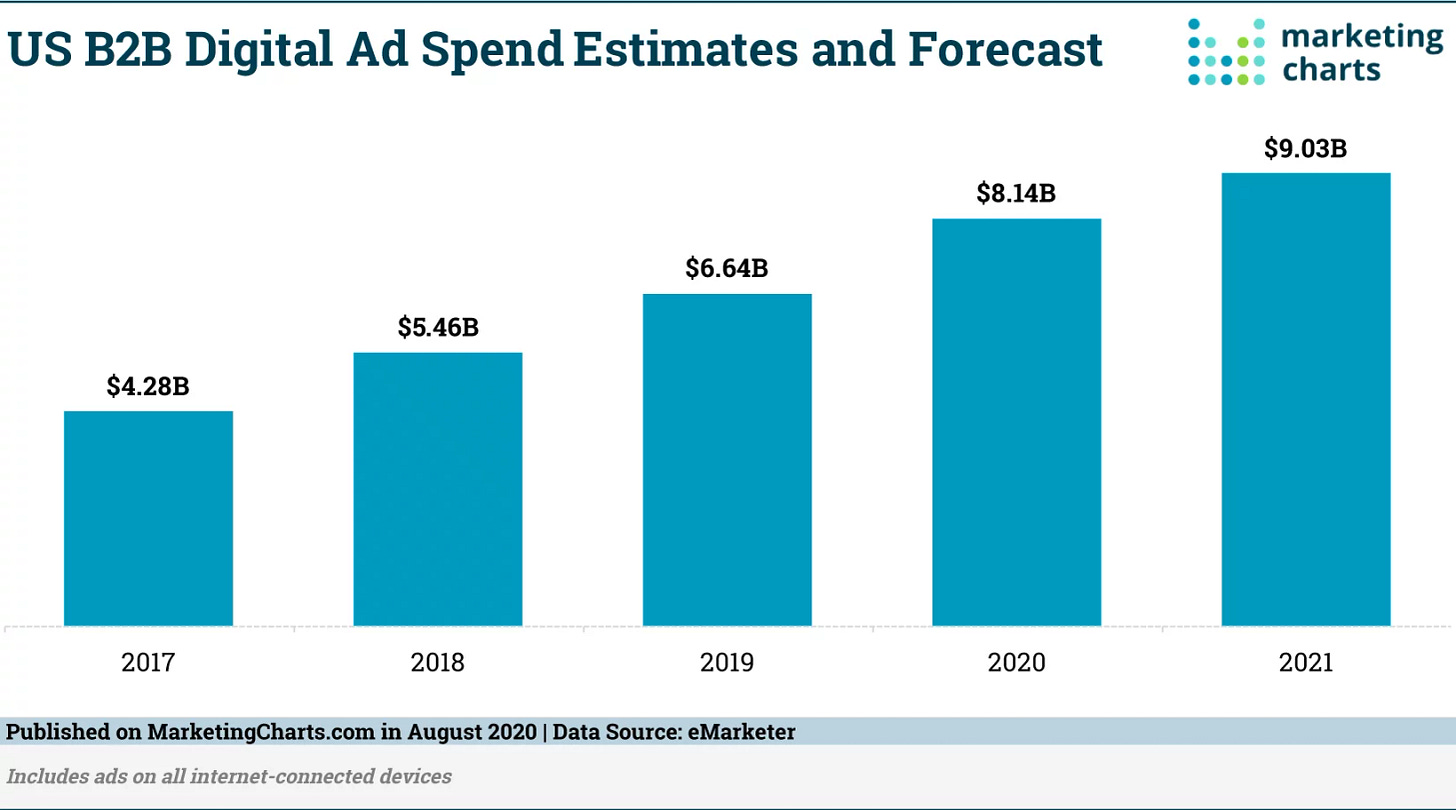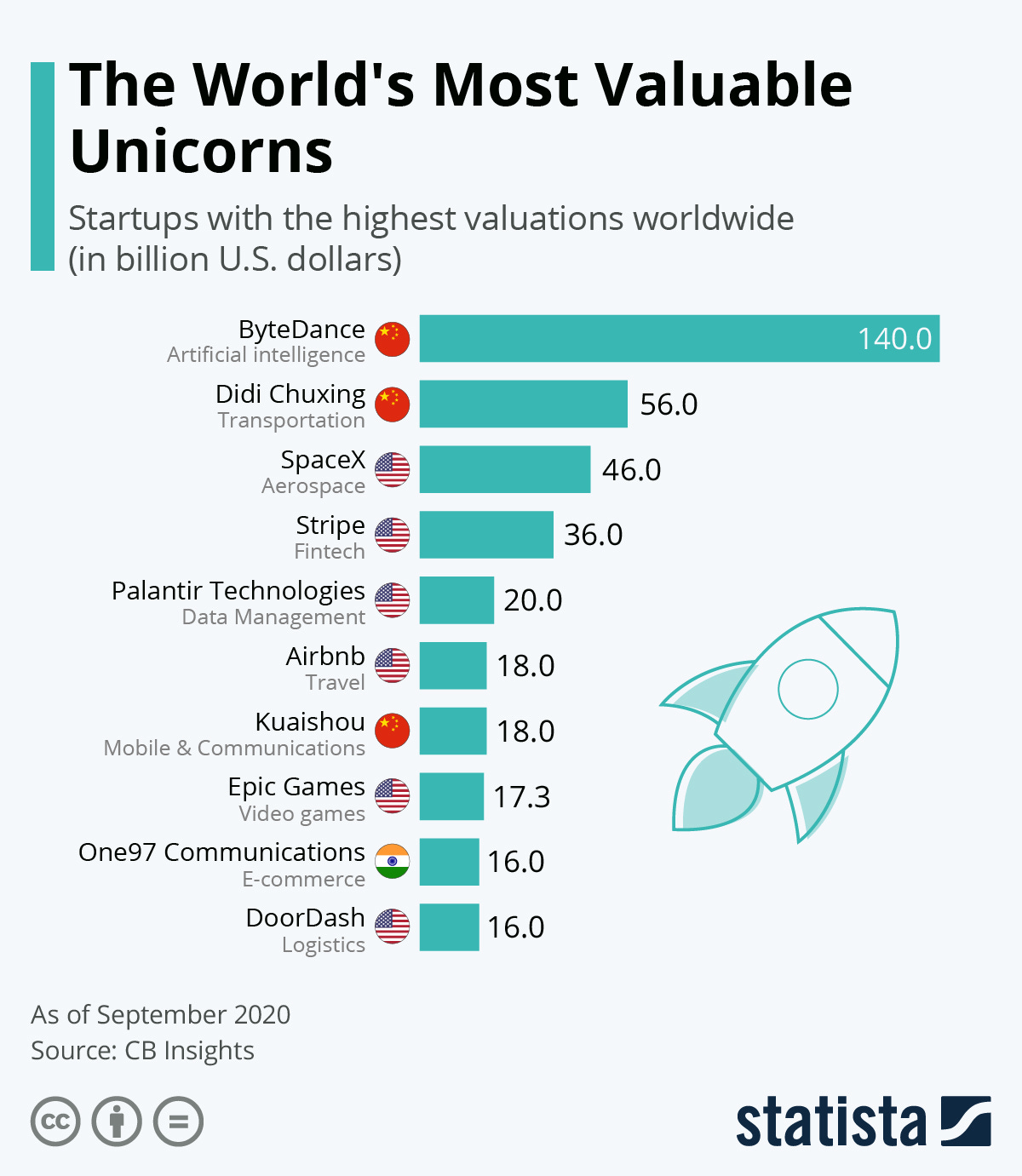I hope you enjoyed your long weekend. I will be back with an essay next week (on the Optimizely acquisition news and conversion rate optimization), and the first “beta” podcast launches tomorrow (subscribe through a podcast player here). This week’s briefing also contains the first Marketing BS “ad” - a listing for another newsletter. The ad is listed surrounded by double asterisk (“ad” in quotations because it was a trade - we are cross-promoting each other’s newsletters)
News
Apple/Facebook: Has announced they will delay rollout of the previously announced iOS 14 privacy restrictions until early 2021: “We want to give developers the time they need to make the necessary changes,”. But what are developers really going to do to prepare other than either (1) cheat (i.e., track with email addresses or Facebook logins and not tell Apple), or (2) suck it up and lose tracking? This seems like a PR move by Apple to hope the noise caused by Facebook’s announcement blows over by the time they pull the trigger. Meanwhile, Apple has rolled out a new ad focused on their commitment to privacy. Related: Some good analysis of the impact it will have when/if the change does roll out.
Apple/Epic: Apple’s other battle. Epic filed their latest motion. Two interesting stats: They claim, “Daily active users on iOS have declined by over 60% since Fortnite’s removal from the App Store” and “63% of Fortnite users on iOS access Fortnite only on iOS.”
Google: Over the years Google has reduced data they share on organic search keyword traffic, but the data from paid search has generally been very thorough. Good SEMers use that data to add “negatives” for KWs that are not relevant (i.e., “model train engineer” is very different from “train engineer” if I am a job listings site). But times are a changing, and Google is now going to stop sharing “low volume” keywords, which will make it harder to optimize paid search campaigns. Less work for everyone, lower ROI for smart advertisers, higher revenue for Google and worse experience for consumers.
Network Television: COVID has made predicting future audiences very difficult. Last year at this time the Superbowl was 85% sold out. This year there is only one committed advertiser. Ad buyers want to get audience size guarantees from the networks - i.e., they want to “get what they pay for”. The networks are pushing back, so now the ad buyers want the ability to pull up to 50% of their ad commitments. Developing.
Netflix: Is making a selection of movies and television shows free. When your marginal costs are zero, you have all sorts of marketing levers you can pull. Related: A federal judge just threw out a 1940s “decree” that banned Hollywood studios from owning/operating movie theaters. This opens up the possibility that Disney could buy AMC (for example).
Marketing / Advertising
Movie Theaters: In completely COVID-unrelated news, Vistar is introducing “programatic buying” of movie theater ads. Now you can buy based on (expected) demographics at CPM rates instead of selecting specific films. Assuming there is an audience to advertise to any time soon.
Amazon: How to influence the product copy that appears in your Amazon search results.
Streaming: A new service offering ad-supported streaming of local television stations. Related to last week’s essay on the Future of Marketing.
LinkedIn: Has released a guide on how to market on their platform. These self-promotional things are painful to read, but some potential take-aways include: (1) Video ads to grow awareness, (2) Image ads are best for driving traffic, (3) Lots of recommendations to re-target users who interacted with your earlier ads. Take all of this with a grain of salt, and if you are going to lean heavily on re-targeting be sure to measure incrementally carefully.
Burger King: BK tried a marketing stunt on Twitch - when you “tip” a player $3, you get an automated “callout”. BK tipped high-traffic streamers over and over again “calling out” menu options to everyone else watching. They got great effective CPM rates, and controversy (see last week’s essay) but got banned by the platform (“not the intended use”).
** Newsletter **: Influence Weekly covers the most important trends in influencer marketing. Includes insights into Diet Coke's strategy w/ influencers, campaign breakdowns from the Navy, Peugeot, RCA, Adidas, Moda in Pelle. And what actually counts as "Good Engagement"?
Political Ads: New study shows the effects of “political advertising are small regardless of context, message, sender, or receiver”. This should not be surprising - advertising is just not that powerful. Can we all relax now about blaming Facebook and start looking to find the real source of our problems?
Double Jeopardy: It is accepted fact now that brands with highest market share also have the highest loyalty. The common counter-argument has traditionally been “What about Apple”. The latest data shows the “exception” is not an exception

Strategy / Business
GoodRX: What you pay for pharmaceuticals can vary dramatically by retailer, but pricing is opaque and most do not shop around. GoodRX tells you what you will pay at every provider within driving distance - and will even give you “virtual insurance” to get the the “GoodRX rate” - which can often be better that some insurance policies. GoodRX is paid by the retailer every time you use their insurance. They just released their S-1 to go public, and Alex Tausssig of Lightspeed Capital has a nice analysis of the business
Walmart: Walmart+, their response to Amazon Prime goes live in two weeks, and includes free grocery delivery - their one product that is still significantly better than Amazon’s offering. WSJ. Bloomberg.
Amazon: A nice reminder that for all the hype around Amazon’s drone deployment, their big successes over the last few years has been through simple logistics investments. Block-and-tackle. Keep it simple.
Amazon 2: In addition to algorithms, Amazon now spends more than $500MM/year and employs 8,000 people to tackle fraud on their platform - primarily fake reviews.
Retail
Tim Hortons: The Canadian quick-service restaurant is partnering with Tencent to create 1,500 esport themed coffee shops across China.
Microsoft: Is closing all of their retail stores. Retail is not dead, but it never made sense for Microsoft, which for all their brand recognition, is really an enterprise B2B business.
COVID and the New World Order
Tracing Apps: New research suggests even small penetration of tracing apps could have significant impact in slowing COVID spread. So if you were on the fence about downloading one, now is the time!
Groceries: Shopping behavior has changed in some significant ways since March. Variety seeking has declined. Demographics of shoppers have shifted (towards men). Number of trips per month has decreased. Size of purchases per trip have increased, even as time per trip has decreased. Already CPG firms have responded by reducing SKU counts (less variety, less out of stock). Lots of ramifications here for both retailers and CPG firms if the trends stick.
Chiropractors: Apparently business is booming from increases in work-from-home injuries. I think the moral is your couch-coffee table set-up may not be ideal.
B2B Marketing: Dramatic acceleration of digital advertising for B2B companies. Events were cut, so they had to find somewhere else to spend their budgets

College: Price Sensitivity Study: “Students with a strong knowledge of COVID-19 transmission and risks are an enigma: they are willing to pay only around 50% for online classes but likely to engage in activities that present significant barriers to holding in-person classes. This enigma underscores the conundrum facing universities.”
Weight Gain: Searches for extra-large men’s clothing are up. I guess people did not use their shelter-in-place time to get back in shape like they said they would…
Roblox: The game has grown +40% since February

GPT-3 and Machine Learning
Product Hunt: Lists ten more AI-tools that will summarize emails or write blog posts for you. I tested a few commercialized ones and have so far been unimpressed. But this is going to come at us fast.
AI-Fraud: Not that kind. Students have figured out that when their papers are graded by AI they can just “keyword-stuff” at the end of their essays to dramatically improve their grade. This works now, but the AI-graders will get better. This strategy worked in the early days of SEO, until it didn’t. Related: When Timothy Leary was put in prison he was given the personality test that he had invented himself. He gamed the test to get put in a minimum security facility that he promptly escaped from.
Video Editing: Video example showing AI-driven capabilities that can highlight and remove elements from a video, or “expand the view”. Really incredible. Worth the click.
Face-creator: GPT-3 x GAN = use natural language to describe a face, and the tool will create it, example given is “Generate a female face with blond hair and green eyes”
Minority Report: A sheriff in Florida decided to use a “predictive algorithm” to guess who is likely to commit crimes in the future, and then sent his police to harass the predicted offenders. With apologies to Tom Cruise, this is not how it works.
Fun
Appearance: There are lots of correlations between being good looking and other “good” things (like intelligence, income, etc). But here is one I did not expect: Good looking people are more likely to be altruistic (when both variables are measured independently). I am a little surprised and I don’t think I can explain why.
Largest Websites: A cool animation of the top ten websites and their traffic from 1993 to 2020. It’s amazing how long it takes for the leaders to die. AOL and Yahoo hold their crowns for long into the Google era. Amazon holds mid-top ten spot for a long time while other sites jump up and down on the listings.
Signatures: When Japan surrendered at the end of WWII the allies all signed the paperwork. The Canadian representative signed UNDER their country name, instead of on top - which caused France, Netherlands and New Zealand to scratch out the typeface and scribble new hand-written notes of their country names lower on the page. I feel like I sign things incorrectly on forms like this from time-to-time. But I would hope if I ever defeat an existential adversary after a half-decade of battle, that I would take the time to get it right…

Decacorns: The world’s most valuable pre-IPO start-ups

Market Share: Apple vs Android market share by country

Keep it simple,
Edward


